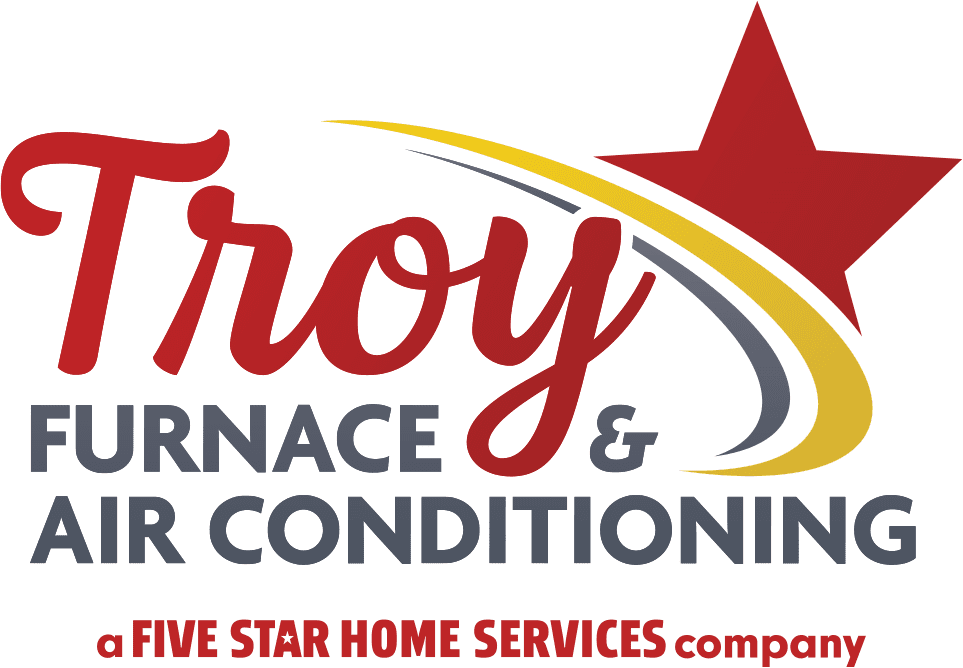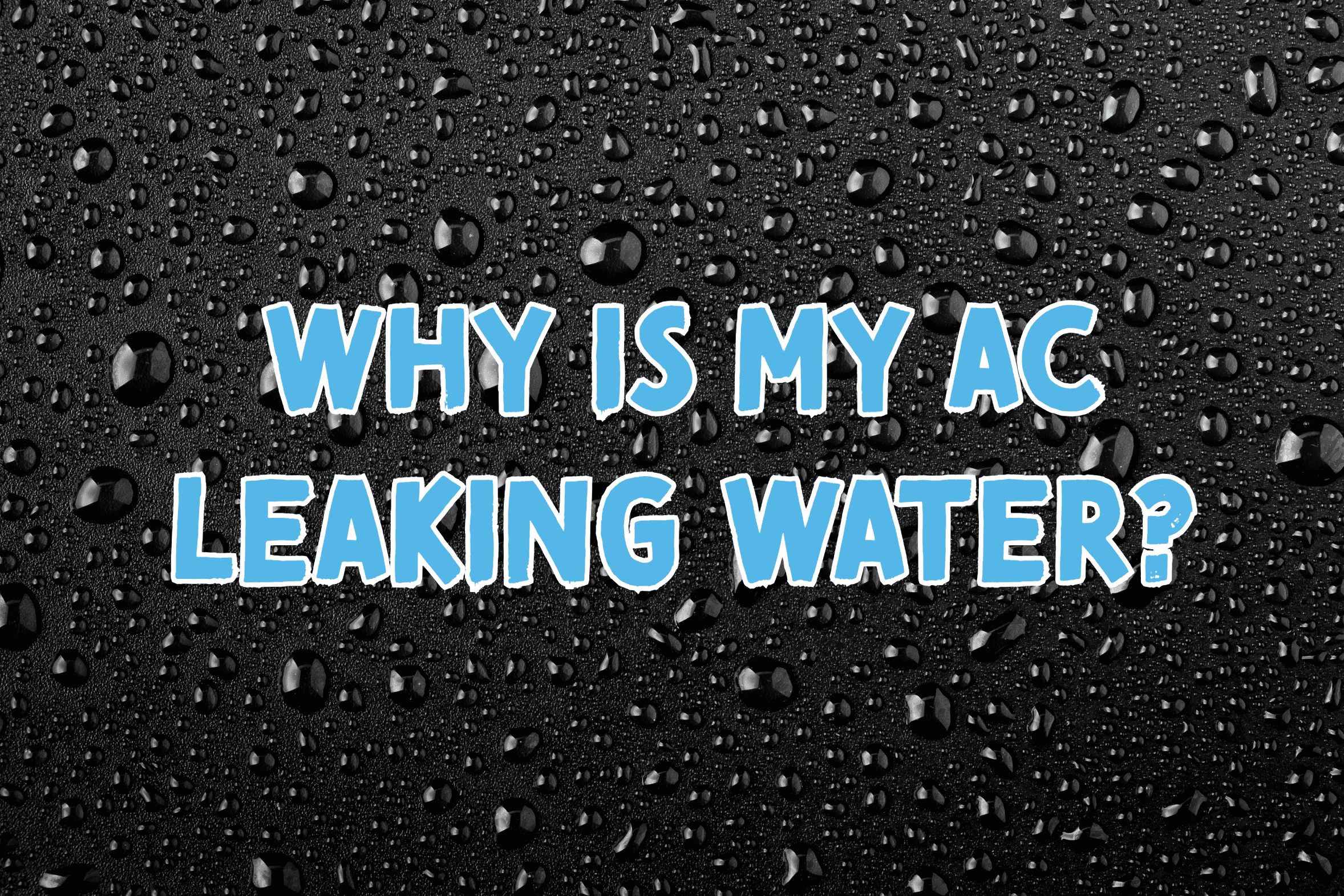Let’s face it—Ohio summers can be scorching! As a result, your AC has likely been working overtime to combat the intense heat. Unfortunately, when your AC operates at full capacity, it can sometimes lead to water leaks. This can understandably be alarming, but rest assured, our experts at Troy Furnace & Air Conditioning are here to guide you through diagnosing the issue and finding a solution.
1. Is the Thermostat Working?
Your thermostat is crucial in determining how cold the evaporator coils need to be to achieve your desired home temperature. When excess water condenses on the coils, it can lead to leaks. If your thermostat malfunctions, it will directly impact your AC’s performance. For optimal home comfort and efficiency, ensuring your thermostat functions correctly is essential.
Think of your thermostat as the central hub of your HVAC system. When this crucial component fails, the entire system is compromised. A malfunctioning thermostat can disrupt communication with your HVAC system, affecting its ability to regulate temperature, control the airflow, and maintain comfort. Many HVAC issues can be traced back to a faulty thermostat. By simply checking your thermostat, you may identify and resolve the source of your air conditioning problems.
2. Is the Evaporator Coil Frozen?
One of the primary reasons for AC units leaking water is the evaporator coil freezing. This typically happens when air filters become excessively clogged, preventing adequate airflow over the coils. As a result, the evaporator coils can freeze, causing water to drip off during the thawing process. To address this issue and ensure your AC’s optimal performance, it’s crucial to maintain clean air filters and consider professional maintenance services.
You can fix this issue by:
- Air Filters: Ensure you regularly inspect your HVAC air filters. While it’s recommended to replace them every 1 to 3 months, a quick double-check never hurts. A clogged air filter could be the source of your air conditioning issues. Resolving your leaky AC problems might be as simple as installing a fresh air filter!
- Thermostat Settings: To address the issue of a frozen evaporator coil and stop any dripping or leaking, you need to thaw the coil first. Raise the thermostat temperature by a few degrees to facilitate the thawing process. If your entire unit is frozen, it’s advisable to turn off the cooling settings and switch on the fan instead.
3. Is the Condensate Drain Clogged?
Your condensate drain might be clogged. The condensate drain is the pipe that directs water from the drain pan to the outside. When it gets clogged, water that should be draining can back up and leak outside the drain pan. To avoid this issue, you need professional assistance to ensure your system operates efficiently.
We strongly advise against troubleshooting this issue yourself to avoid damaging your pipes or system. A clogged condensate drain can cause various AC malfunctions, but it’s an easy fix for a qualified and licensed technician. Let our experts handle it to ensure the best results and maintain the efficiency of your system. Reach out to us for professional assistance.
4. Is the Condensate Drain Pan Clogged?
Let’s move on to the condensate drain pan. The drain pan collects water run-off from the evaporator coil as it cools the air. If the drain pan is worn out or damaged, it can lead to water leakage on the floor. To avoid this, you need to ensure the drain pan is in good condition. For any issues, give us a call, and our experts will handle it efficiently, ensuring your system runs smoothly without leaks.
Troubleshooting this issue is straightforward. Should you encounter this problem, simply replace the old or damaged drain pan with a new one, following the manufacturer’s instructions carefully. If you’re unsure about performing this task, our expert team is ready to assist. Don’t hesitate to reach out for help.
5. Is the Refrigerant Low?
When the cooling refrigerant in your air conditioner drops, so does the pressure inside the unit. This can cause the evaporator coils to freeze, leading to an unwelcome and wet mess. Here are a few signs that you might be running low on refrigerant:
- Hissing or bubbling sounds coming from the AC unit
- Ice on the evaporator coils
- The AC is not blowing out “cold” air
- Water leakage
To get this fixed as quickly as possible, you need to call a licensed technician. They have access to the right refrigerant for your air conditioner and the proper equipment to safely refill it.
6. Is the Condenser “Sweating?”
Did you know that your air conditioner can “sweat?” This is simply condensation forming on the unit due to warm or humid air coming into contact with the cool exterior of the AC unit. This excess moisture or water droplets can run off the AC, making it appear as though there is a leak. Our expertise in HVAC systems ensures we can address such issues effectively, providing you with top-notch service and peace of mind. If you’re experiencing this problem, give us a call, and let our professional team handle all your cooling needs.
While mild condensation is typically not a cause for concern, an excessively “sweating” unit requires immediate attention from a professional. You certainly don’t want to deal with water damage or a failing AC unit due to a prolonged issue. For all your HVAC needs, trust our expertise to keep your home safe and comfortable.
We prioritize your safety and comfort. If you’re dealing with a leaking air conditioner and can’t pinpoint the cause, give us a call. We offer five-star customer service and are ready to handle all your HVAC needs with professionalism and expertise. You can trust Troy Furnace & Air Conditioning to provide you with the best solutions for your home.
Call us today at (937) 230-5521, or schedule an appointment online now by clicking here!






